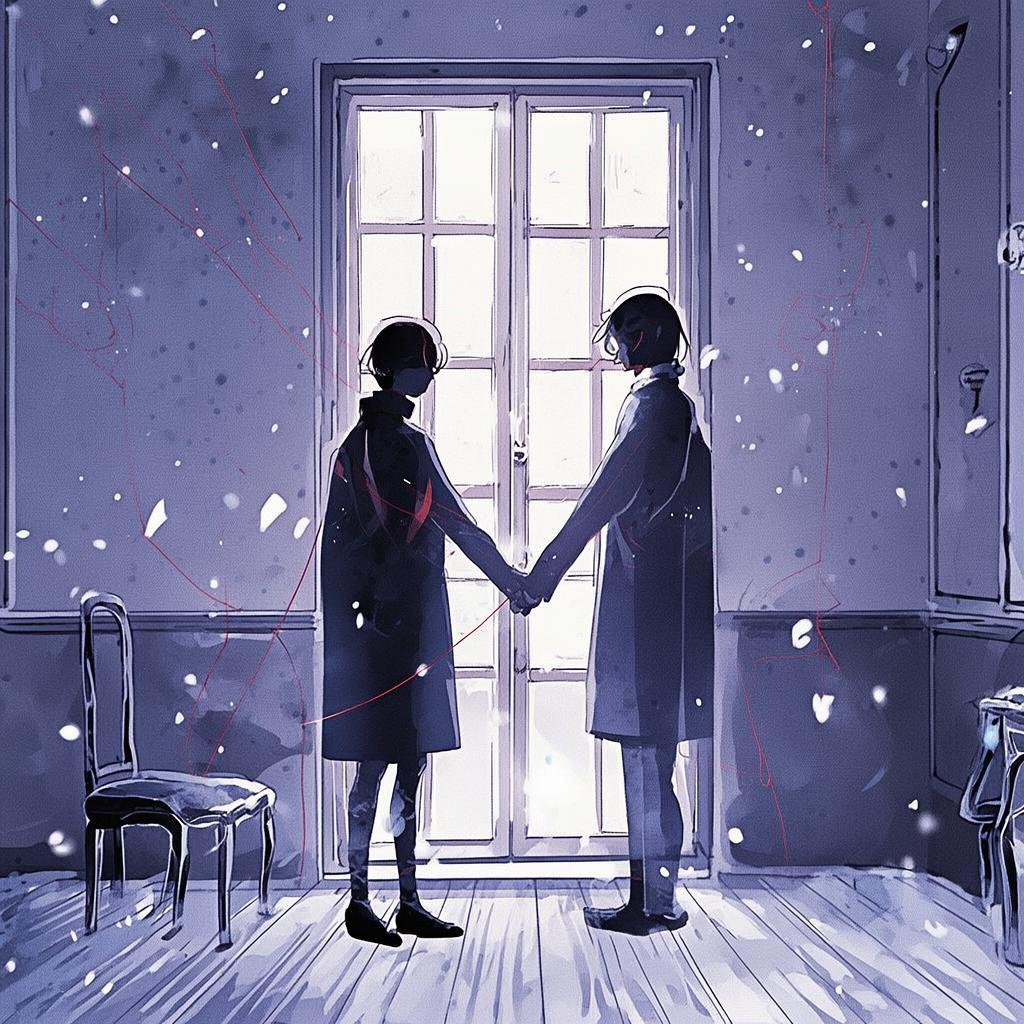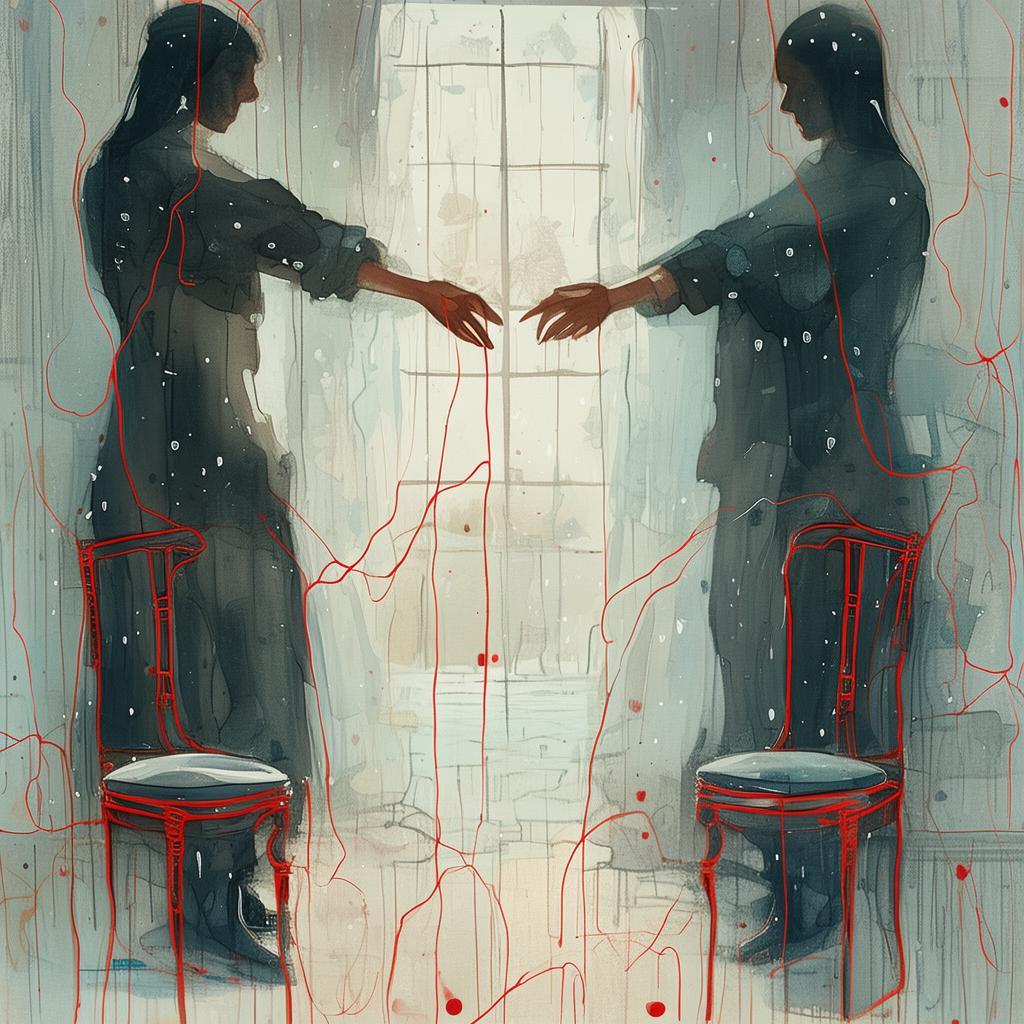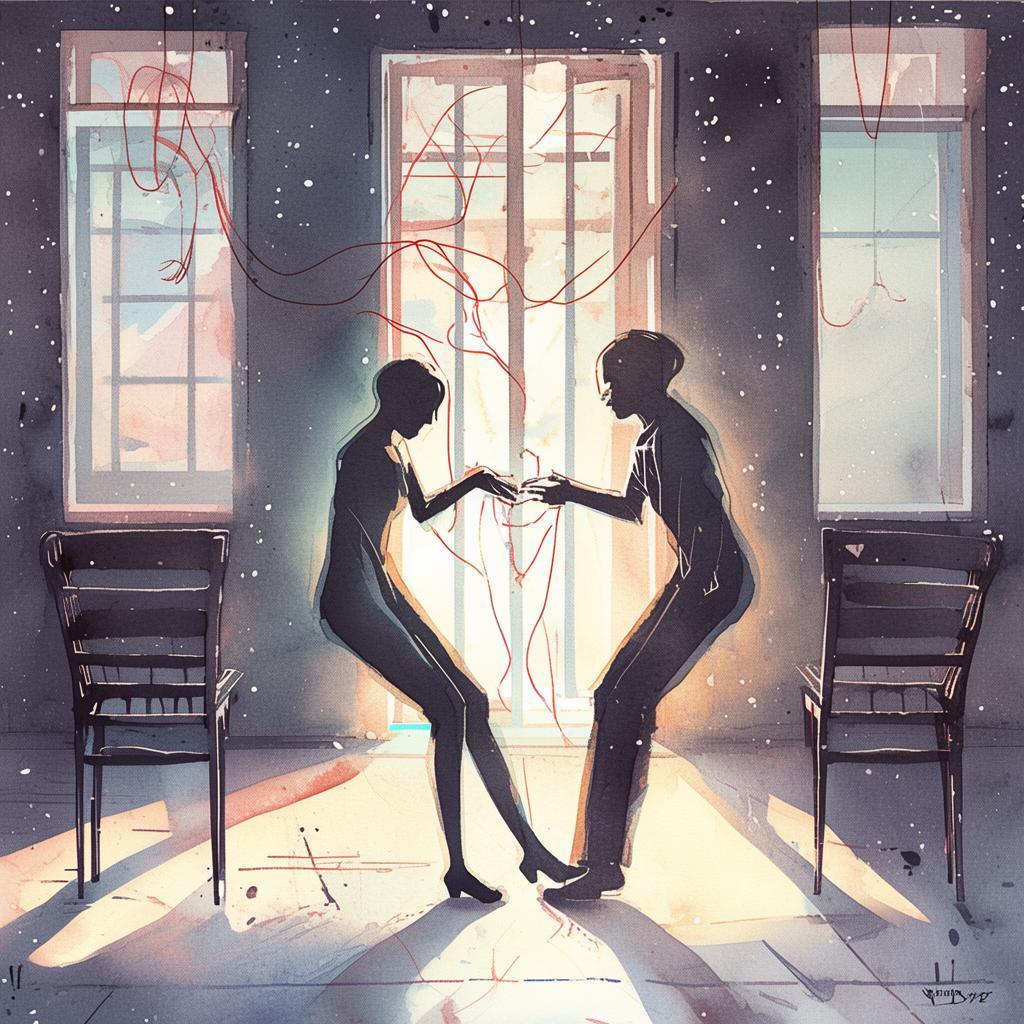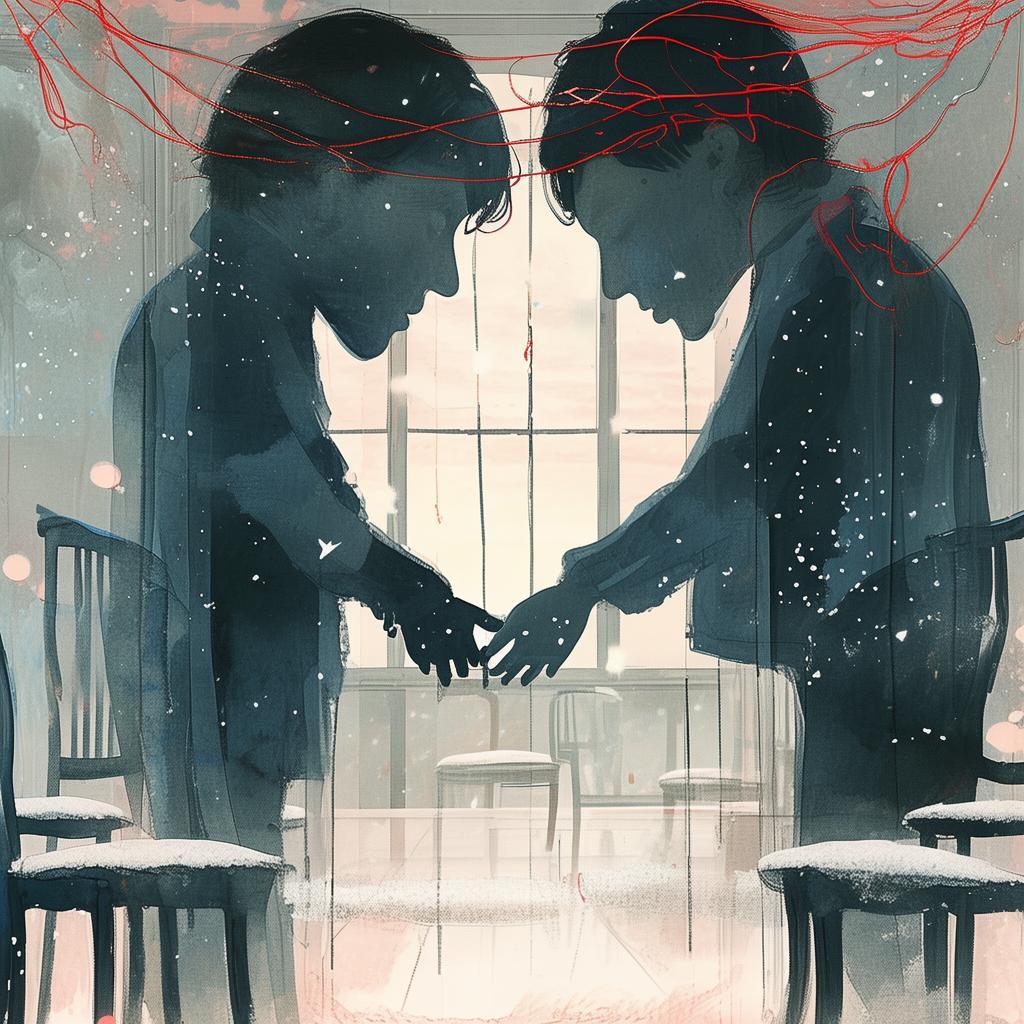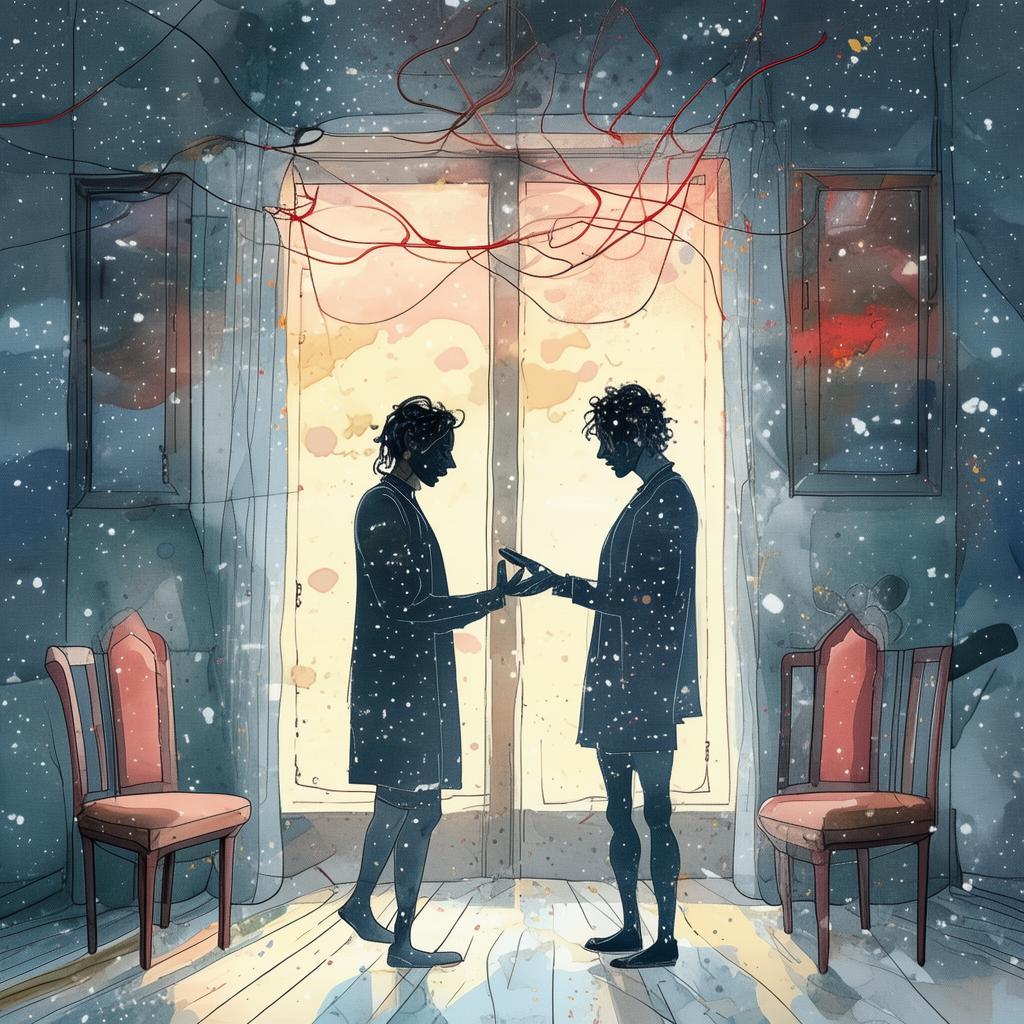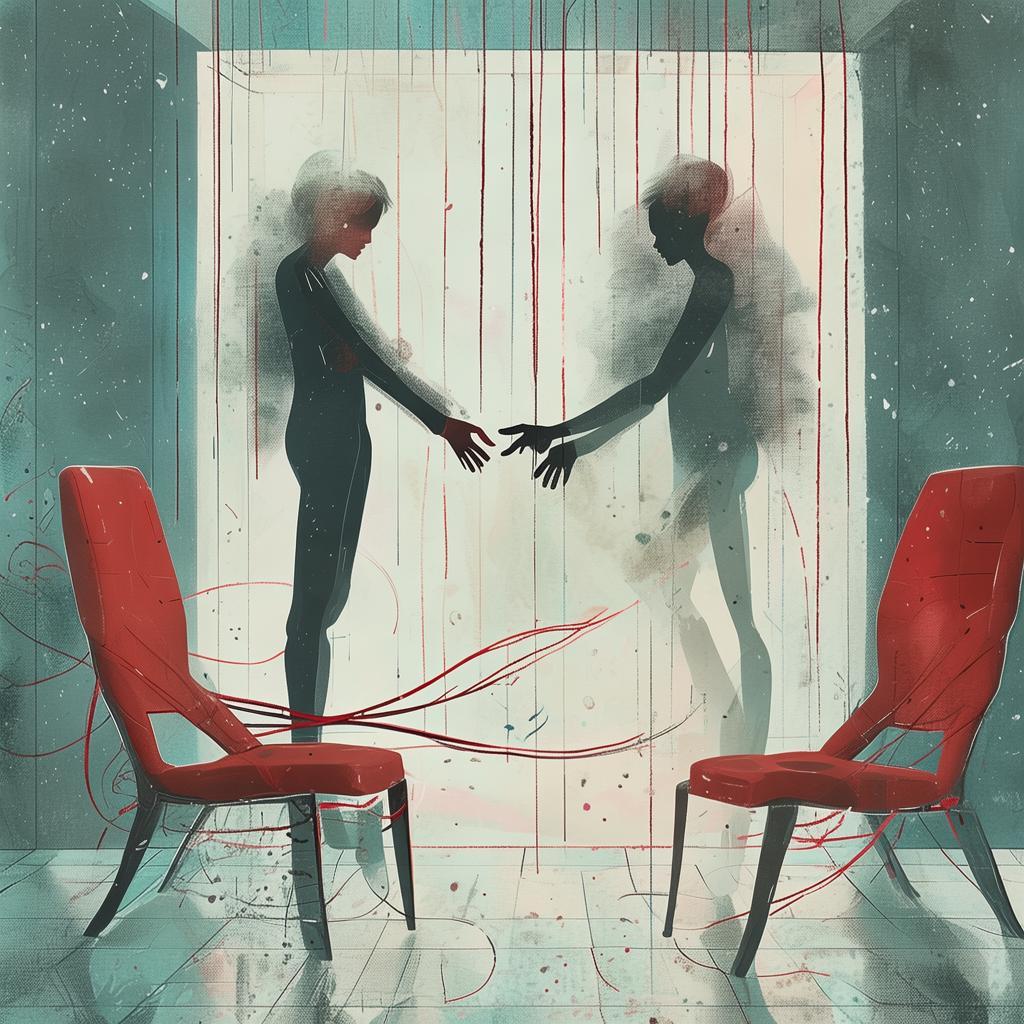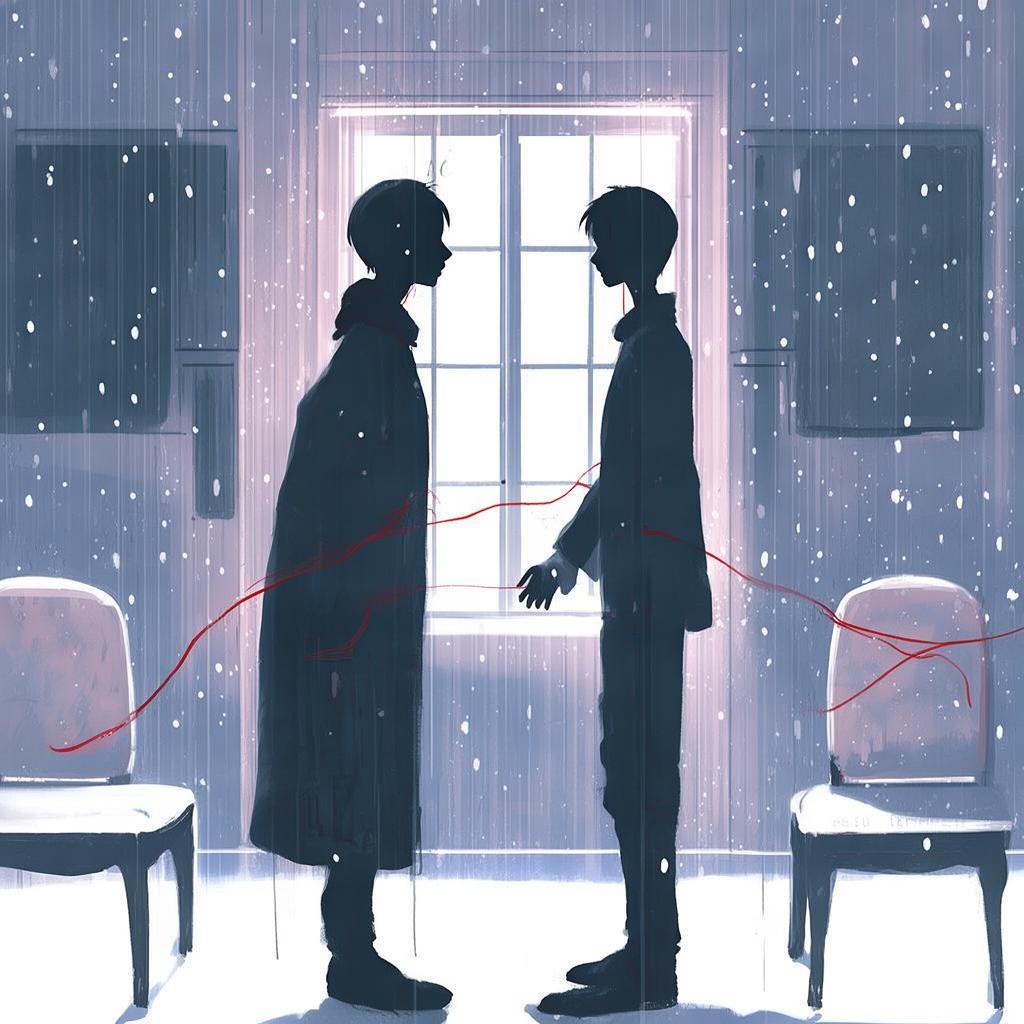Whispers of the Fleshly Symphony
The moon hung low in the sky, casting an eerie glow over the grand opera house. The air was thick with anticipation, the scent of roses mingling with the faint hint of fear. In the heart of the audience, two brothers sat side by side, their fingers intertwined in a silent promise of loyalty and love.
Liang, the elder brother, was a maestro of melodies, his music a reflection of his soul's turmoil. His younger brother, Qing, was a virtuoso of the strings, his passion for music as fierce as his love for Liang. Together, they had created a symphony that captivated the world, but beneath the applause and adoration lay a web of deceit and desire.
As the curtain rose, the opera began, a tale of forbidden love and the power of music. The brothers were the stars of the show, their performances a testament to their bond. But as the story unfolded, the truth of their relationship came to light, and the audience was left reeling.
Liang, the composer, had poured his heart into the opera, crafting a narrative that mirrored his own forbidden love for Qing. Yet, Qing was torn between his love for Liang and his duty to the family that had raised him. The opera became a mirror, reflecting the inner turmoil of both brothers.
The climax of the opera reached a fever pitch as Qing was forced to choose between his family's honor and his love for Liang. In a moment of passion, Qing confessed his love on stage, the truth of their relationship laid bare for all to see. The audience gasped, the shock of the revelation resonating through the opera house.
As the curtain fell, the brothers were left to confront the consequences of their actions. The family was in an uproar, demanding Qing's expulsion from the family. Liang, in a fit of despair, attempted to take his own life, his music becoming a symphony of his own sorrow.
In the aftermath, Qing was faced with a difficult choice. He could follow the family's wishes and leave Liang behind, or he could defy them and stand by his love. In a heart-wrenching decision, Qing chose Liang, forsaking his family for the man he loved.
The brothers found themselves in a world of isolation, their music now a whisper rather than a roar. They retreated to the opera house, where they spent their days composing and performing for an audience of one. Their music was a testament to their love, a symphony of passion and pain.
One night, as they performed a piece they had written together, the audience returned. It was the family, forced to confront the truth of their own hearts. They had seen the love between the brothers, and it had touched them deeply.

The family chose to forgive Qing, recognizing the love between the brothers as something pure and beautiful. Liang and Qing were allowed to return to the stage, their music once again a force to be reckoned with.
The opera house became a sanctuary for the brothers, a place where they could express their love and their pain. Their music was a testament to the resilience of the human spirit, a symphony of love that had withstood the test of time.
In the end, Liang and Qing found redemption in each other, their love transcending the boundaries of family and society. Their music became a legacy, a testament to the power of love and the beauty of redemption.
The Fleshly Symphony, The Brothers' Opera of Passion, was more than just a story; it was a reflection of the human condition, a symphony of love and loss, passion and betrayal, and the ultimate quest for redemption.
✨ Original Statement ✨
All articles published on this website (including but not limited to text, images, videos, and other content) are original or authorized for reposting and are protected by relevant laws. Without the explicit written permission of this website, no individual or organization may copy, modify, repost, or use the content for commercial purposes.
If you need to quote or cooperate, please contact this site for authorization. We reserve the right to pursue legal responsibility for any unauthorized use.
Hereby declared.
